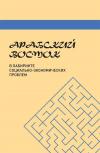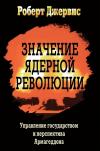Thomas Frear's Blog
The study of International Relations has historically focused on the activities of large, powerful states, dismissing the smaller entities of the international system as unimportant or merely objects of policy for the larger entities. This truism extends especially to those entities that exist in an unrecognised or partially recognised limbo, neither a full part of the international system nor an ungoverned space. Yet in the post cold war world, following the dissolution of large multi-national states such as the USSR, these entities have begun to proliferate; either as a consequence of the drive for independent statehood by a small nation (Abkhazia, Northern Cyprus, Chechnya), an attempt at unification of an ethnic enclave with an external parent state (Nagorno-Karabakh, South Ossetia) or as a political expedient in response to adverse circumstance (Taiwan, Somaliland). This proliferation provides a significant challenge to an international system in which the primary participants are states, and to the institutions created to oversee their interaction. Unrecognised entities, existing outside of this framework, represent a threat to the universal principle of sovereignty, that one true institutionalised aspect of international relations. As such the study of these entities and their interaction with the world outside their borders is a study important for a systemic understanding of the post cold war world. This blog aims to provide an introduction to these entities and to address the complexities inherent in their policy making. Thomas Frear is a recent graduate of an MA in International Relations in Eurasia from the Higher School of Economics (Moscow) and an MA in International Relations from the University of Kent. Thomas is currently based in London.
Новые записи
Прошедший опрос
-
Какие угрозы для окружающей среды, на ваш взгляд, являются наиболее важными для России сегодня? Отметьте не более трех пунктов
Увеличение количества мусора 228 (66.67%) Вырубка лесов 214 (62.57%) Загрязнение воды 186 (54.39%) Загрязнение воздуха 153 (44.74%) Проблема захоронения ядерных отходов 106 (30.99%) Истощение полезных ископаемых 90 (26.32%) Глобальное потепление 83 (24.27%) Сокращение биоразнообразия 77 (22.51%) Звуковое загрязнение 25 (7.31%)

«Международные исследования в России»

Статистические данные по международной проблематике

Электронные журналы и библиотеки

Александр Филоник, Иван Бочаров, Гурген Гукасян, Ирина Дерюгина, Елена Мелкумян



